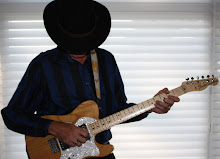The formula for a hit song
is simple: intro, verse, chorus, verse, chorus, bridge, verse, chorus, chorus
again, out.
Other than songs based on 12
bar blues, the above pattern is ubiquitous, predictable, universal. One of these formulas applies to all your
favourite songs.
That is, until you get
closer. Then you notice The Beatles
starting a song with the chorus (Nowhere
Man), or stretching a 12 bar blues pattern into 14 bars (Revolution). Or The Animals using two different
turnarounds on a 12 bar pattern (See See
Rider), or The Doors going verse-verse fragment-chorus-bridge-verse
fragmant-chorus-verse (Love Her Madly). Or ZZ Top refusing to be consistent in how
many times they play the intro/hook in between verses (Sharp Dressed Man), an attitude employed by The Stones on Brown Sugar.
Maybe these dudes didn’t
know the rules they were breaking. Maybe
they didn’t care. Or maybe, the rules
aren’t creative straight jackets at all.
Maybe they are ignition switches.
